There are many reasons a friendship can end, and while dogs bring people together for the most part, our beliefs about dogs can divide us, too.
It’s hard to believe, but there are people out there who don’t like dogs. They’re not really a problem, in general. For the most part, dog lovers like me can be friends with non-dog people. We just don’t invite them to occasions where our dogs will be present.
The bigger problem when it comes to friendships is when people who claim to love dogs have harmful beliefs about dogs, especially if you’re passionate about all things canine. That bigger problem is what can cause us to think about cutting a friend off entirely.
The Bigger Problem
You don’t always know what someone’s beliefs are or will be when you start a friendship, but maybe a comment or a social media posts clues you in to something that makes your skin crawl.
Maybe they hate certain breeds, or maybe they’re fine with returning dogs to the shelter when they get “too old,” or maybe they are cool with feeding their dog cheeseburgers and ice cream until they become obese or diabetic.
Whatever the case may be, their beliefs aren’t just at odds with your own; they’re also harmful.
So that leaves you with a choice. Do you end the friendship on the spot or “ghost” the person and slowly fade out of their life? Do you try to bring about positive change to the person’s beliefs, or do you just hold your nose and look the other way?
Ultimately the choice is going to be yours to make. Each relationship is different, and only you can find out how to approach it. But if you would like some advice or some points to think about when making your decision, keep reading.
You Can Discuss & Educate
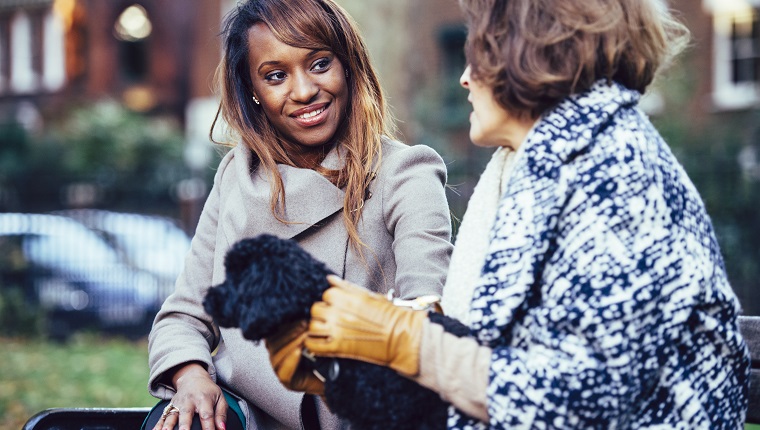
If you decide that your friendship is worth continuing, you may want to talk to your friend about your own beliefs. It’s possible that the person is coming from a place of ignorance and simply hasn’t considered that there are other points of view on dog topics.
You may be educating them on the subject for the first time.
Discussing a friend’s beliefs about dogs can be stressful, especially if you think they’re causing harm. But if you’re truly friends, your relationship should survive a tense discussion from time to time.
If your friend isn’t willing to hear you out — and if you’re not willing to hear them out — then maybe this friendship isn’t meant to be.
Ultimately, it may be worth it to change a friend’s mind. You’ll probably be helping dogs by creating an ally who supports your causes, and maybe they can change others, too.
Come from a place of love and knowledge. Educate yourself on the topic you’re going to discuss. Maintain your cool and don’t berate them. Change often comes slowly, and one discussion isn’t going to solve all the problems in the world.
Your friend may feel attacked, especially if they love dogs and truly believe they’re doing the right thing by holding to their beliefs. That’s what makes changing them so difficult.
All you can do is state your opinions, back them up with facts, reassure your friend that you know their heart is in the right place, and hope for the best.
Healing Harmful Beliefs
There are a great many harmful beliefs out there when it comes to dogs, and some are more damaging than others.
Some might ask who you are to judge, or who I am to judge. Nobody is perfect, and isn’t an imperfect home for a dog better than no home?
I would say it depends on how imperfect the home is.
When it comes to judging others’ beliefs about dogs, there are things that just irk or annoy me. I won’t consider ending a friendship over them. Then there are beliefs that I know will cause immediate injury, suffering, or death to dogs. Those are the ones that I find difficult to let slide.
Harmful beliefs are like wounds. They can either be healed, or they can fester and get worse. In order to heal those beliefs, we need to educate, and that starts with educating ourselves.
Below are several views about dogs that are harmful, and though there are many other harmful beliefs, these are a few of the most common. They’re followed by resources for you to read on the topics.
When you approach a friend, it’s important that you use your own words. Passive-aggressively posting an article to someone’s Facebook wall is not educating.
These resources will help you form opinions and learn facts so you can start a real discussion and begin the healing process. Check them out below.
The Hoarder
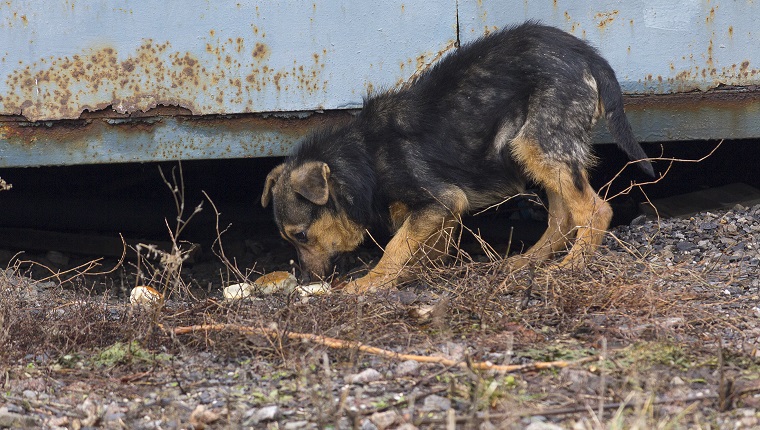
Hoarding is a psychological issue that you may not be qualified to deal with. No amount of dog articles are going to make you a trained psychologist.
However, if your friend truly believes they love dogs so much that they’re blinded to the harm they’re causing, you may be able to give them a wake-up call. If you can’t at least push them in the right direction, you’ll need to decide if it’s worth getting the law involved to save dogs’ lives.
Here are some resources on the topic that can help you learn more:
The Friend Who Trades A Senior For A Younger Dog
Some people believe it’s no big deal to get a puppy, raise them, and give them away when they get “too old” and require medical care.
They think providing a dog with a home for a while is better than no home at all, and then they ditch the dog before they have to deal with the pain of aging and death, hoping that maybe someone else will come along and pick up their dog from the shelter.
The grim reality is that senior dogs are far less likely to be adopted than younger dogs, and they may be euthanized to make room for pups with a better chance at finding homes. They’re also left abandoned in a shelter with no family. Can you imagine how that feels?
Here are some resources that can help you learn about the plight of senior dogs and help others to cope with loss, rather than fear it:
- Before You Return That Rescue Dog To The Shelter…
- 5 Ways To Adjust To Life With A Senior Dog
- Grief And Acceptance Of Loss
The Friend Who Demands That Their Dog Die With Them
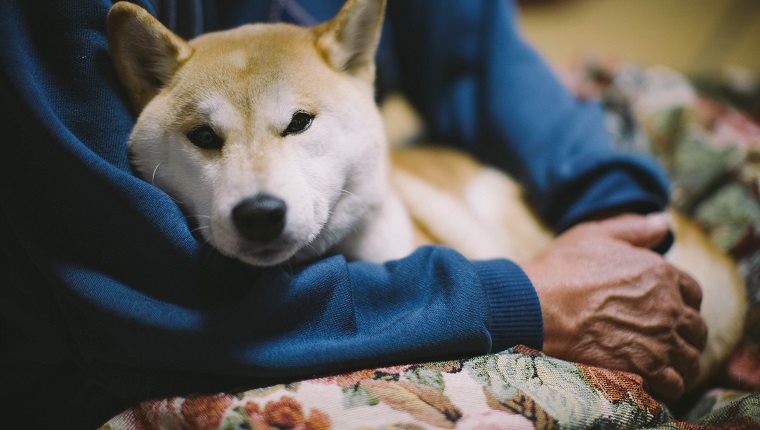
Do you have a plan for what happens to your dog if you should die suddenly? Most of us know a friend or relative who would take our dog, and for some, a reputable shelter or rescue might be an option.
Sometimes, however, dog parents say that they want their dogs to be euthanized upon their deaths. The thought of their dogs living in a shelter or going without a home is too much to bear.
This kind of thinking can cause a great family dog to lose their life for no reason.
While seniors do struggle to find homes, many find caring families or sanctuaries that take them in and love them for the rest of their days. There are so many other options.
Here are some resources that can help in your discussion of what can happen to dogs after their humans pass away:
- What To Do When You Have To Give Up Your Dog
- Pets And Your Will: Protecting Your Animals’ Future
- Make Arrangements For Companions While You Can
The Friend Who Says Certain Breeds Are Bad
If people have individual beliefs about certain dog breeds, it’s not so bad. Everyone can get whatever dog they want. Maybe they had a bad experience with a particular breed.
The problem comes when people start convincing others that certain breeds are bad. This can cause people to not give a shelter dog a chance, and then a dog has to go without a home or get euthanized for these beliefs. Lawmakers start creating Breed Specific Legislation that prevents others from having those breeds.
Most dog lovers know that training and socialization matter far more than breed, and it’s almost always the fault of the human at the other end of the leash when dogs are dangerous.
Here are some resources that can help you talk about breed stereotypes:
- Changing Negative Stereotypes Of Pit Bulls
- BSL and BDL: 12 Reasons to Oppose Breed-Discriminatory Legislation
- American Pit Bull Terrier Temperament Test Has Shocking Result
The Friend Who Feeds Dogs Whatever They Want
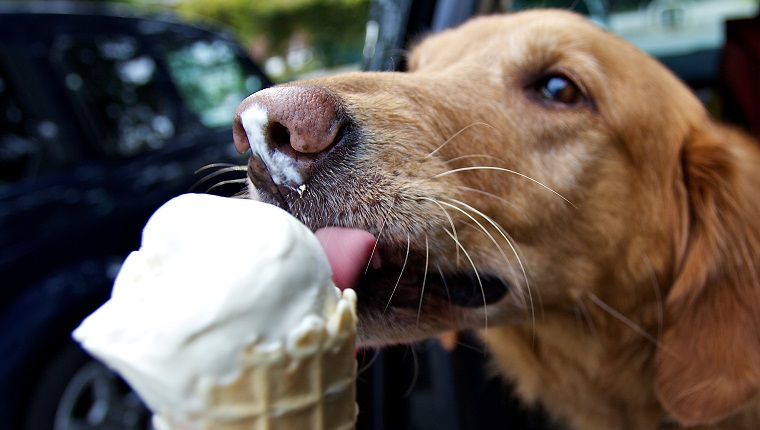
As a responsible dog parent, you’re probably always keeping up with research on what food is good for your dog, or at least you’re having that discussion with your veterinarian.
Some people, however, don’t understand how important diet is to health. They have no problem regularly tossing their dog a McDonald’s cheeseburger or an ice cream cone. Their dog suffers from obesity or diabetes, and the problem only gets worse.
A once in a while treat is fine, but enough is enough.
In the best case scenario, they’re just ignorant about the importance of canine nutrition and will hear you out.
Here are some resources to help you talk about the importance of dog diets:
- Nutrition Guidelines For Adult Dogs
- Is Pet Obesity Really Just A Form Of Pet Neglect?
- Why Do People Fat Shame Dog Owners For Their Overweight Dogs?
- Feeding An Overweight Dog
The Friend Who Won’t Let Their Dogs In The House
Maybe you know someone who has an “outdoor only” dog who isn’t allowed in the house. No dog should be an outdoor only dog.
Some breeds are more able to withstand being on their own than others, but dogs are meant to live with companionship. When they don’t, the chances for aggression, animal attacks, getting lost, dognapping, and death from exposure go way up, especially if they’re unsupervised.
Here are a few resources that can help you start a conversation:
- Can I Leave My Dog Outside All of The Time?
- Don’t Fool Yourself: Animal Neglect Is Animal Abuse
- 5 Tips To Protect Your Dog From Dog Thieves
The Friend Who Leaves The Dog In The Car
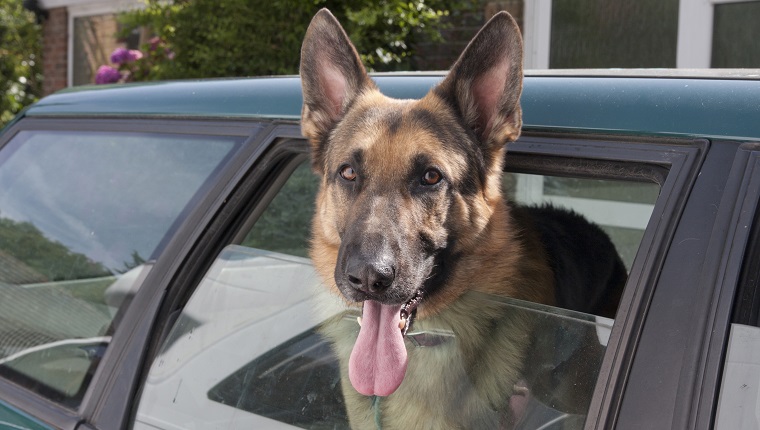
Most dogs love a car ride, but leaving them in the car while you go in and shop or eat can be dangerous or deadly.
A car is like an oven on a hot day, and it doesn’t take long for temperatures to become unbearable. Even on cooler days, there’s a risk that a dognapper could spot your pup and break into your car to get them.
It’s best to leave dogs at home where they’re reasonably safe.
Here are some resources that can help you learn about the dangers of leaving dogs in cars:
- Can I Leave My Dog In The Car If I’m Only Going To Be A Few Minutes?
- It’s A Crime: Prosecuting People Who Leave Dogs in Hot Vehicles
- What To Do If You See A Dog In A Hot Car
The Friend Who Believes You Should Never Euthanize
If a dog lives a good, long life and drifts off to the rainbow bridge in their sleep, that’s a blessing. However, much of the time, things go differently.
As dog parents, we have a price to pay for a life of love and companionship. We usually have to be the ones to decide when our dogs’ suffering becomes too great and when they need to be put to rest.
Some dog parents cannot face this, and they prolong their dogs’ suffering until it’s unbearable.
If you love your dog, you must be strong for them and make the decision when the time is right. It’s hard, but we owe them that.
Here are some resources that can inform you about euthanasia before you discuss it:
- Dog Owner Charged With Unnecessary Cruelty For Waiting To Euthanize His Dog
- Make Your Dog’s Last Days Their Best Days
- When To Say Goodbye To Your Dog
You Can’t Change Everyone

It’s important to realize that you cannot change everyone’s mind. But even more than that, it’s not your responsibility to change everyone’s mind. You are absolutely allowed to cut people out of your life when you find them toxic.
If you spend too much time trying to change others, you won’t be able to enjoy yourself and continue to form your own opinions. Really think about whether this friendship is worth it, or if you can get past your differences and just accept that this person has beliefs about dogs that are harmful.
Your desire to change this person’s mind probably comes from a place of concern for dogs. Changing them is not, however, the only way to show your concern or improve the lives of dogs.
You can also do good things, like volunteer at a shelter or adopt a less adoptable dog. You can lead by example, and that’s okay, too.
If you can’t change a person, don’t worry. Change is hard, and maybe somewhere down the road, something will just click for that person, and they’ll understand what you were trying to tell them.
Do your best. It’s all you can do.
Who Do You Want In Your Life?
In deciding whether it’s worth your effort to have a tough discussion and risk your friendship, you should ask yourself who you want in your life. What kind of people do you want to surround yourself with?
I have a community of friends and family who absolutely love dogs and few, if any, people who dislike or don’t care about dogs. Because we all come from a place of love for our pups, we can discuss pet parenting tips comfortably, and even disagree.
But none of those people have beliefs I would consider harmful to dogs. If they did, I’d have to strongly reconsider our relationship.
There are many people in this world, and while it may be difficult to lose a friend, there are other people around who will share your beliefs and interests. They can become your friends, too, and you won’t need to work so hard to change them.
Relationships come and go, and you shouldn’t have to compromise your sense of right and wrong to keep them. After all, there are always dogs who can be our best friends, and I haven’t met any pups with beliefs I can’t stand.
What other harmful beliefs about dogs have friends shared with you? Have you ever changed anyone’s opinions about dogs? Let us know in the comments below!









